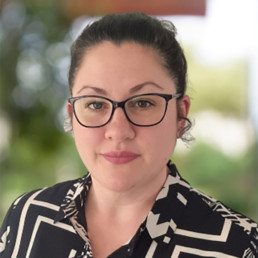
Written by Joanne Robinson
Joanne Robinson, BA, MA, PGCE, FCCT, is the Director for Training and Development at TeachUp, a company specialising in professional development for teachers in the UK and internationally. She has also led a number of teacher training programmes, including an iPGCE and an MA in Education with Pedagogy. Prior to this, she taught in secondary education for 16 years. She is keen to promote inclusive education that centres upon the wellbeing and autonomy of teachers as well as pupils.
Making the statement that cancer helped my daughter to survive school sounds quite alarming, but it is something that she and I have discussed at length over the years since this happened to her.
This blog is written with her permission. She is now 26 years old and thriving, so this did occur some time ago. However, the reason I’m writing this now is that I believe it is still resonant for school practices today.
Abigail was diagnosed with leukaemia in January 2011. She was 12 years old at the time, which is quite unusual for this type of cancer. She had just started Year 8 in the school I was also teaching at. Abi had already been diagnosed with Autism just before beginning in secondary. Since then, she has had a further diagnosis of ADHD.
Treatment for leukaemia was gruelling, with two bouts of intensive chemotherapy in the first nine months followed by two years of maintenance chemo. This was the standard protocol for girls back then, although it may have changed as cancer treatments evolve rapidly, thanks to fantastic research trials.
Children may experience some infection, but our consultant advised that life should be normal during the maintenance phase of treatment. However, because Abi was becoming a teenager and experiencing hormonal changes, we found that this wasn’t the case. In the end, she was hospitalised around ten times during her care. Some of those stays were over a month in length and at one, terrifying, point, she contracted neutropenic sepsis and was lucky to have survived.
Abi’s attendance in school was understandably low. It was a really hard two years and, in the end, she dropped back a year in order to regain some of the lost time.
School was brilliant with her. They provided her with a reduced timetable. Because she had very low immunity and her platelet levels meant she was vulnerable to bleeding from knocks and bruises, she was able to spend her breaks in the SEND inclusion room.
Before cancer, Abi was struggling in school because of the difficulties that she had due to her Autism. She found the high school environment very overwhelming to navigate. She was experiencing frequent meltdowns at home. During treatment, she was able to take school at an easier pace, spending time having respite in the SEND room and not forced to interact with other pupils at breaks unless she chose to. Suddenly, her school life was manageable for her.
After treatment ended, Abi’s needs were well-known. Chemotherapy has long-term effects on energy, so school was happy to continue with a reduced timetable and flexibility in allowing Abi breaks when she needed them. She was also in regular attendance in the SEND room. These things were there for her without her having to ask for them – self advocacy can be hard for any child, let alone those with communication difficulties (many time-out systems put the onus on the student to instigate them, which means they are never used).
By the time Abi reached her GCSEs, she did astonishingly well. She was then able to use a similar approach to her time in the school’s Sixth Form.
Abi has since said to me that the accommodations that school made for her cancer were what made it possible for her to complete her studies as a neurodivergent student. In my own teaching experience, I had witnessed many neurodivergent children being unable to cope by the time they reached GCSE: the sheer energy it took to mask every day through this stressful time, repressing behaviours that might be seen as strange by others, would result in them refusing to attend.
There is a lesson here. We have to adapt school practice to accommodate the fluctuating energy levels that occur with neurodivergence. These pupils are often academically capable and should be attaining great outcomes, taking those first steps into fulfilling adult lives. Instead, they are burning out in their teens. Simple changes can adjust the classroom to make it more accessible, and enabling respite or shorter days could be the difference between a neurodivergent child completing school or not.
It should not take a serious illness to ensure proper accommodations are made: neurodivergence is a disability that needs reasonable adjustment from the outset. I think the tide is turning and there is great work being done to raise awareness, but we have a way to go before we can claim with certainty that education is equitable for neurodivergent students.

